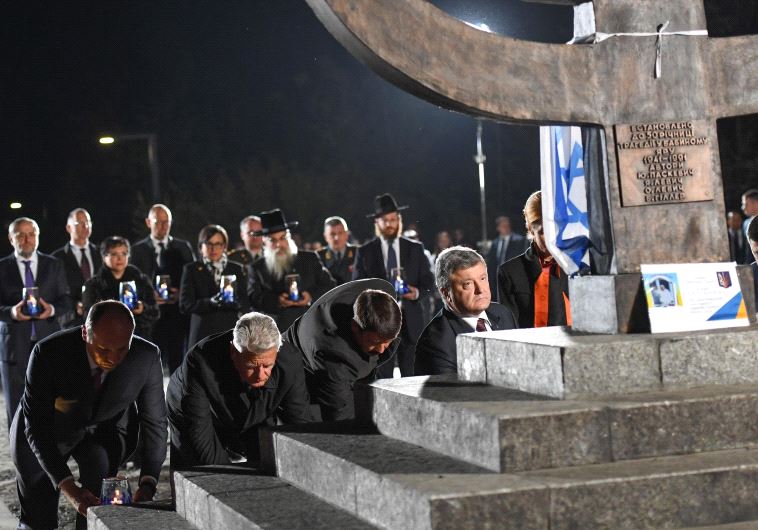Ukrainian President: No Ukrainian has the right to forget Babi Yar
This was by far the largest commemoration of Babi Yar in Ukrainian history, and stood in sharp contrast with the country's years under Soviet rule.
 Ukrainian official state ceremony to mark 75 years since the Babi Yar massacre(photo credit: SHAHAR AZRAN / WJC)Updated:
Ukrainian official state ceremony to mark 75 years since the Babi Yar massacre(photo credit: SHAHAR AZRAN / WJC)Updated: